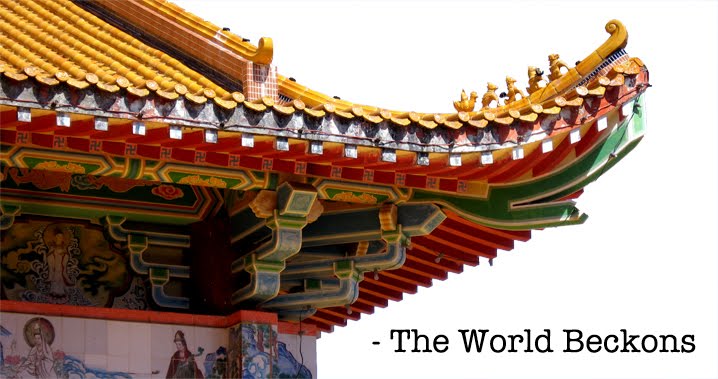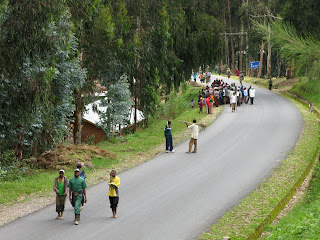Parc National des Volcans, Rwanda – The sun didn’t so much rise as it lightened the sky over the majestic, mist-covered peaks of the Virunga volcanoes in the north-west corner of the country this morning. Having left at 3:45 a.m., it was yet another early start.
By seven, I gathered with 50 foreigners who would be split into teams and taken to track families of mountain gorillas on different peaks. Of the 320 such gorillas remaining in the world, 250 can be found in Rwanda, the others in nearby DR Congo and Uganda.
When asked if I was feeling energetic before being assigned a climbing team, I should have known it was going to be a long morning – but a challenge not to pass up. The answer, of course, could only be yes. I joined seven other climbers from Australia, the United States and Germany for our assignment: to track the Susa (“River”) family made famous by researcher Dianne Fossey. At 40 members, this is the largest group in the Virunga Massif and contains both the first set of surviving twins and long-time Fossey friend, “Poppy”. What an amazing opportunity and, in some ways, honour.

After driving another hour, we set off on foot across volcanic rock and through farmer’s fields for six kilometres. In the driving rain, we couldn’t even see that there was a mountain in front of us. Upon reaching the base, we began the long ascent into a steep bamboo forest laid out like a tight giant slalom course that arced over us. A guide hacked a path with his machete and we all hoped to avoid falling down the hill, taking out everyone behind us.
The bamboo seemed impenetrable and we cursed its existence. More than once. After six kilometres – straight up – it finally ended, but we were still left with another eight kilometres through thistles and nettles that stung our hands and stabbed us through our clothes. We began hoping for bamboo again, but at least the sun had begun to shine.
Over several hours, we had covered 20 kilometres, two-thirds of which were vertical. This would, of course, have to be repeated on our descent – a journey that would end six hours after it began.
But the tall greenery swayed behind an enormous black hand that took a sticky plant and fashioned it into a ball of salad before popping it into a large black mouth. A touch of grey shone from its shoulder and a youngster in front of him similarly directed the tasty treat into its mouth. There was now no question the journey was worth it, and that much more delicious because of the investment we had made in it.
A male, who becomes a silverback after 12 years, can grow up to 200 kilograms in size. This was just one of three in this group, which we found seated nearby, having neatly trampled the surroundings into a tidy meadow. Though it was hard to count exactly how many there were, the guide counted at least 25 gorillas, including a week-old baby and several youngsters who wrestled, climbed branches and cartwheeled and spun their way down the hill. A mother with a baby on her back walked right past me and parked herself in a tree just above my head.
For the record, there is nothing cuter than a baby gorilla.
 London, Ontario, Canada – Mounds of snow rest on the side of the road, blackened like smokers’ teeth. The listless wet grass mopes in faded browns as the swollen river climbs the banks.
London, Ontario, Canada – Mounds of snow rest on the side of the road, blackened like smokers’ teeth. The listless wet grass mopes in faded browns as the swollen river climbs the banks.


































